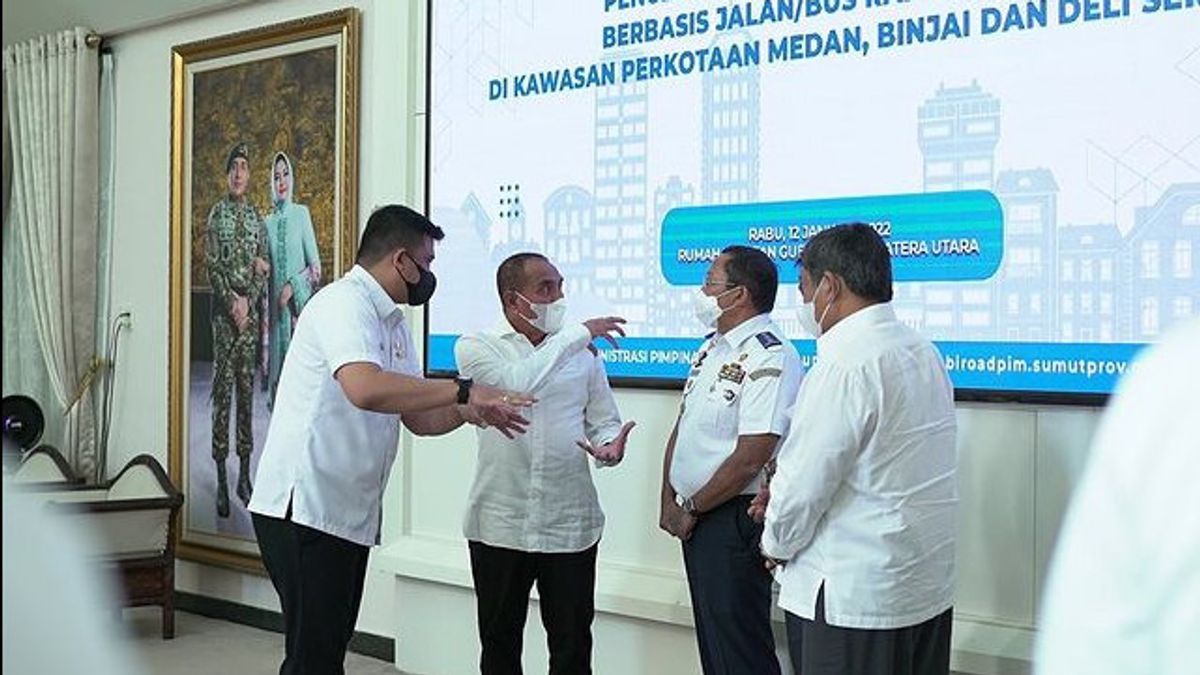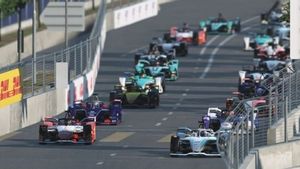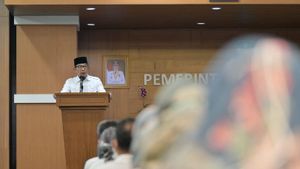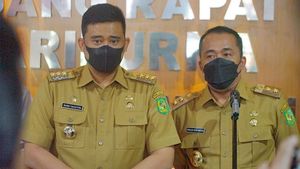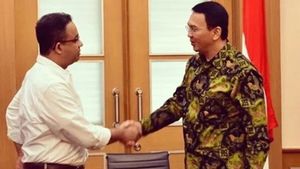MEDAN - The Ministry of Transportation will develop Road-Based Mass Transportation/Bus Rapid Transit (BRT) in Medan City. This step was taken as an effort to unravel the congestion that occurred in the provincial capital of North Sumatra.
In addition to the city of Medan, the development of mass transportation in urban areas is also in the cities of Binjai and Deli Serdang. To support the implementation of the development of mass transportation, the Ministry of Transportation will disburse a budget of IDR 1.8 trillion.
This was revealed when the Mayor of Medan Bobby Nasution signed the Memorandum of Understanding for the Development of Bus Rapid Transit (BRT) in Medan, Binjai, and Deli Serdang Urban Areas at the Hall of the Governor's Office House, Sudirman Street, Wednesday, January 12.
Besides Bobby Nasution, the signing was also carried out by the Director-General of Land Transportation of the Ministry of Transportation, Budi Setiyadi, North Sumatra Governor, Edy Rahmayadi, Binjai Mayor, Amir Hamzah, and Deli Serdang Deputy Regent, M Ali Yusuf Siregar.
Budi Setyadi expressed his appreciation to the North Sumatra Provincial Government, Medan City Government, Binjai City Government, and Deli Serdang Regency Government for being very enthusiastic about making mass transportation the transportation of the future.
"We strategically saw how the enthusiasm and commitment of the regional government were extraordinary, so we decided one of them was to choose Medan City with a budget of IDR 1.8 trillion", said Budi Setyadi.
According to Budi Setyadi, the BRT route will be provided specifically, so that people can get to their destination quickly. Several big cities in Indonesia, he said, experienced obstacles that resulted in traffic jams.
Therefore, the construction of BRT as mass transportation which is planned to serve 19 corridors, is expected to change the mindset of people who have been using private vehicles to switch to public transportation so that congestion can be resolved.
"It all depends on the local government in preparing a strategy so that people can switch to using mass transportation. For example, faster time management, restrictions on private vehicles at certain hours, and so on. If the clock restrictions or even and odd rules are enforced, people will inevitably switch to using mass transportation", he said.
After signing the memorandum of understanding, Bobby Nasution welcomed and expressed his gratitude for the selection of Medan City in the Ministry of Transportation program which aims to overcome the congestion. Moreover, the development of mass transportation, Bobby explained, will be aligned with the Medan City Government program.
"This development is carried out to overcome the problem of congestion in the city of Medan", said Bobby.
To support the development of mass transportation, Bobby invited the people of Medan to switch to using mass transportation provided by the government instead of using private transportation. Bobby explained that there are more residents of Medan during the day than at night because many from outside Medan work in Medan City.
“This condition certainly has an impact on increasing road users, causing traffic jams. So I want to invite the whole community to make mass transportation the main choice so that the congestion that occurs in Medan City can be reduced", he hoped.
SEE ALSO:
Meanwhile, the Head of the Medan City Transportation Office, Iswar Lubis, said that the cause of congestion was due to the annual population increase of 4.1 percent. Then the community still massively uses private vehicles, and the number of city transportation (Angkot) currently operating is as much as 6,500 units with 184 routes, although not all of them are active.
In addition to reducing congestion, explained by Iswar, the development of mass transportation (BRT) is predicted to reduce CO2 emissions by 29,240 tons by 2024, reduce accident rates by 6 percent, reduce travel time per route by about 29 percent, create 1,870-2,178 jobs. people for the BRT crew and capable of carrying as many as 14,323-153,277 passengers per day.
Furthermore, Iswar explained the profile of the Medan BRT project, namely a 21 km special lane corridor, 33 special lane stops (on the corridor), direct service stops, 19 direct service routes with coverage of Medan, Binjai, and Deliserdang (Meelektron). which will be operated later as many as 440 units of buses with a target of 153,000 passengers per day.
The English, Chinese, Japanese, Arabic, and French versions are automatically generated by the AI. So there may still be inaccuracies in translating, please always see Indonesian as our main language. (system supported by DigitalSiber.id)
